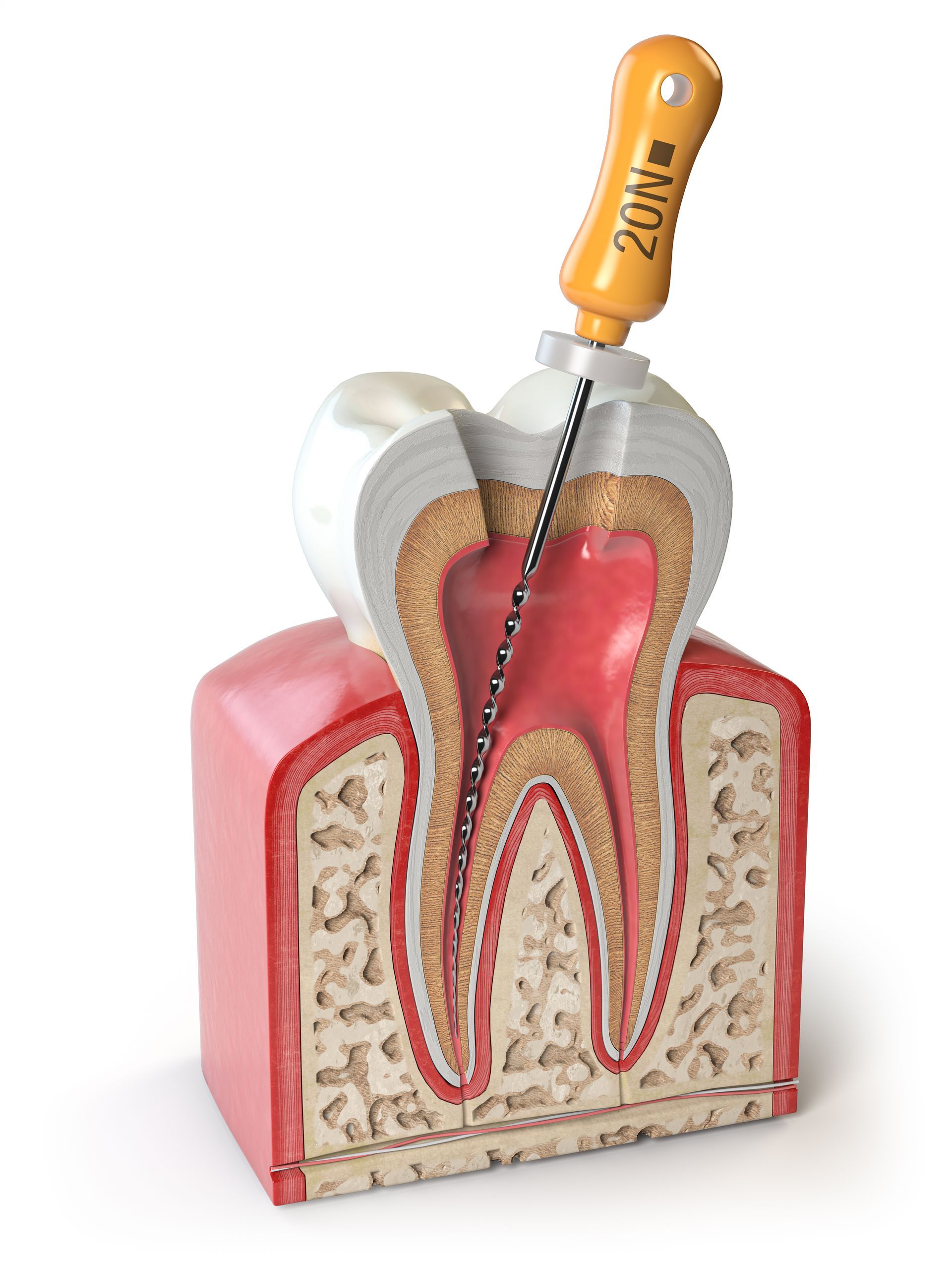Root Canal Therapy
At The Comfort Dentist, your comfort and well-being are our top priorities. Dr. Kandare and our skilled team are committed to providing you with a seamless and nearly pain-free experience when it comes to root canal therapy (endodontic treatment.) Dr. Kandare’s technique, paired with our relaxing in-house sedation options, deliver the peace of mind you’re looking for.
Why You Might Need a Root Canal
Root canals are a special procedure used to save severely damaged or infected teeth, such as those that are abscessed or dying. The interior of your tooth houses a pulp chamber, which contains nerves, blood vessels, and connective tissue. When this pulp becomes infected due to deep decay, cracks, chips, or traumatic injuries, the pain can be excruciating. Left untreated, the infection can spread into adjacent structures, not to mention cause loss of the tooth altogether.
The primary goal of a root canal is to remove the infected pulp, clean and disinfect the inner chamber, and then seal it to prevent further infection. This procedure not only eliminates your painful toothache but also preserves the natural tooth, preventing the need for extraction and potential complications that can arise from missing teeth.

How Root Canals Are Performed
Dr. Kandare will start by conducting a thorough examination with an X-ray to assess the extent of your tooth damage. Once the infected tooth is identified, the area will be numbed using a local anesthetic to ensure your comfort throughout the procedure.
Next, a small opening is made in the crown of the tooth to access the pulp chamber. The infected tissue is carefully removed, and the inner chamber is cleaned and disinfected to eliminate any traces of bacteria. Then we fill and seal off the nerve chamber, preventing recontamination inside of the tooth. Finally, the access opening is sealed with a temporary or permanent filling.
Because root-canal-treated teeth are no longer alive with their own nerve tissue, they can become brittle over time. We will want to place a crown on top of your tooth to provide structural support and long-term integrity.
FAQs About Root Canals
Schedule Your Consultation
If you're experiencing a persistent toothache, sensitivity to hot temperatures, pain when biting down, or a visibly abscessed tooth, call The Comfort Dentist in Chesapeake, VA. Dr. Kandare will discuss all of the options with you—as well as comfortable sedation add-ons available—to put your mind at ease. Membership plans are available!




